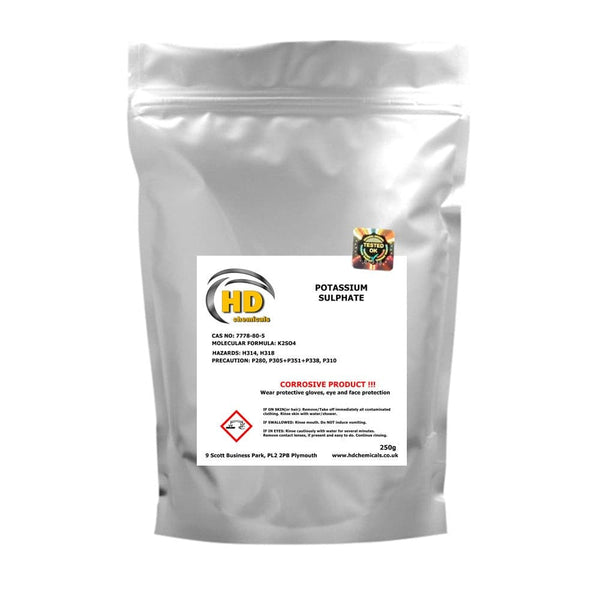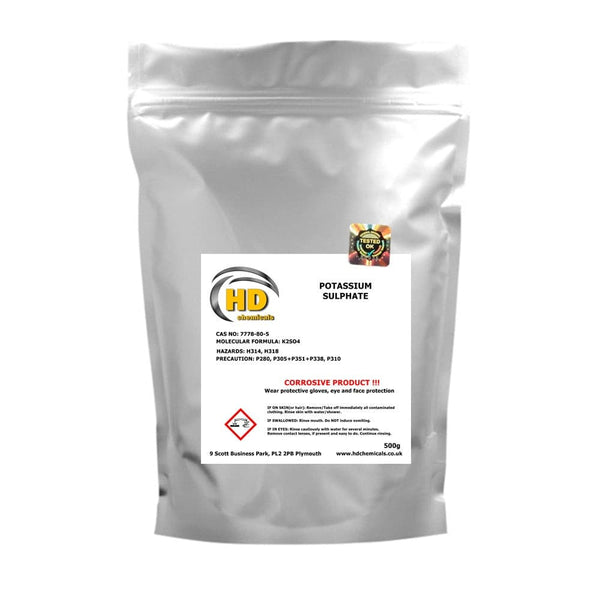Potassium Sulphate
POTASSIUM SULPHATE
Molecular formula: K2SO4
Potassium sulphate is an inorganic chemical compound - a salt of sulfuric acid and potassium. It is also called potash sulphate and is the most popular low-chlorine fertilizer. It combines the most important nutrients - potassium and sulfur, which are easily assimilable to plants and easily accessible. 50% of its composition is potassium oxide (K2O, 42% potassium) and 18% sulfur, which ensures optimal concentration of these primers. It is the best source of nutrients for plants that are sensitive to chlorides and for intensive cultivation systems (aquariums, greenhouses, foil tunnels).
Unlike other sources of potassium, such as potassium chloride or potassium nitrate, potassium sulphate has a fairly low salinity index, thanks to which it is the preferred potassium fertilizer for areas susceptible to soil salinity. Kraft fertilizers are the most effective and environmentally friendly.
Potassium is a macroelement, which is about 1% of the plant's dry matter. It activates over 50 enzymes, and at the same time participates in osmoregulation and helps maintain ion balance.
Symptoms of potassium deficiency are visible first on older leaves. Plants take it in the form of K + ions. His most frequently recommended and used source is potassium sulphate (K2SO4). Typically, doses from a few to a dozen ppm / week are used. In planted aquariums where this element is not given, there is a high probability of a deficiency. Water from waterworks is sterilized and usually contains too little potassium in relation to the demand of plants.











